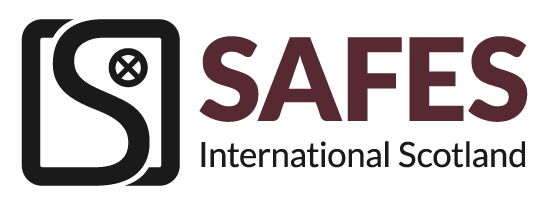How Safes Are Tested for Security Standards
When it comes to safeguarding valuable assets and confidential documents, a safe’s reliability is paramount. But have you ever pondered how safes endure rigorous testing to meet stringent security standards? In this blog post, we delve into the fascinating process of testing safe security, providing insight into the meticulous evaluations ensuring their efficacy.
The security of a safe is not merely a matter of its robust exterior; it’s a result of meticulous testing that pushes these guardians of valuables to their limits. Join us as we delve into the intriguing world of safe testing, where durability, resilience, and precision are paramount.
The Testing Ground
Safe manufacturers subject their products to a battery of tests to ensure they meet or exceed industry standards. One of the primary testing grounds is an independent testing laboratory equipped with state-of-the-art facilities designed to simulate real-world scenarios.
1. Fire Resistance Tests
The ability to withstand fire is a critical feature of many safes. In general, these tests expose safes to extreme temperatures to assess their fire resistance. The duration and intensity of the fire simulate various potential scenarios, ensuring the safe’s contents remain unharmed in the event of a fire.
If you are looking for a fireproof safe to buy, we at Safes International offer a wide range of graded fireproof safes. Also, if you are a business owner and are not sure which kind of safe is the best option for your business, you might want to check out our latest blog on The Vital Role of Fireproof Safes in Business Security
2. Burglary Resistance Tests
Safes are challenged with simulated burglary attempts to evaluate their resistance to tampering and forced entry. Skilled technicians employ a variety of tools and techniques to assess how well the safe withstands attacks, such as drilling, prying, and manipulation of the locking mechanism.
3. Impact Tests
In some instances, safes are subjected to impact tests to simulate the effects of a fall during a fire. This ensures that even if a safe were to collapse, its structural integrity would remain intact, protecting its contents.
4. Locking Mechanism Evaluations
The locking mechanism is the heart of a safe’s security.
Therefore, testing experts evaluate the durability and reliability of various locking systems, which encompass traditional key locks, combination locks, electronic locks, and advanced biometric systems.
To check out the upgraded locking options you can have when buying a safe from us, get in touch with one of our team members by filling out this form.
Certifications and Standards
Once a safe successfully completes the rigorous testing regimen, it can be certified by recognised organisations such as The Loss Prevention Certification Board (LPCB) or the European Security Systems Association (ESSA). These certifications assure consumers that the safe meets or exceeds industry standards for security and reliability.
Having all these kinds of certifications is what makes a safe, AiS approved. If you want to learn more about what AiS Approved means, we suggest you read Demystifying Insurance Approved blog post by SMP Security Group, our partner and manufacturer.
The journey of a safe from manufacturing to the market involves a comprehensive and demanding testing process. Additionally, consumers gain confidence in the reliability and effectiveness of their chosen security solution by understanding the rigorous testing process for security standards applied to safes. These tests, covering fire resistance, burglary resistance, and durability, ensure that a safe is ready to stand guard against unexpected challenges it may face.
In conclusion, we must add that in security world, trust in a safe’s ability to protect your most valuable assets is paramount. So, the next time you open your safe, understand that it has undergone rigorous security evaluations, showcasing its resilience and strength, and has emerged victorious in the face of the most stringent tests.
For more information about our Certified Safes, please contact us through the form provided. Alternatively you can call us on 0141 554 1170 or drop us an email at [email protected].


